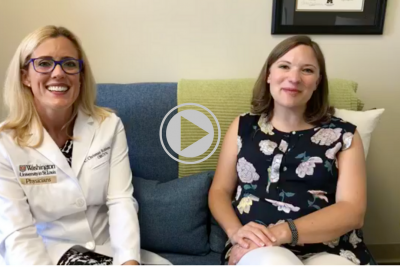Dr. Sarah Garwood, an adolescent pediatrician with Washington University at St. Louis Children’s Hospital discusses the signs, effects and prevention of bullying.
The effects of bullying can appear as early as preschool. Bullying instances seem to increase during the elementary school years, peak in middle school, then decrease in frequency in high school. As parents, we have to pay close attention to what’s happening in the lives of our children in order to notice the signs of bullying and properly address the emotional effects of bullying.
How do you know if your child is being bullied?
Some signs that your child might be experiencing the effects of bullying are:
- Sudden changes in behavior. Your child may seem sad, withdrawn or angry if they are being bullied.
- Lost or broken personal items. Damage to physical belongings like books or missing lunch money is a common indicator that your child might be bullied at school.
- Physical symptoms such as headaches, stomachaches or changes in sleeping and eating habits. Be aware of the physical signs of bullying in younger children, as they may not be able to express their emotions through words as effectively as kids who are older.
- Loss of friends or changes in friendship patterns. Children who are being bullied at school will typically avoid social situations because of the decreased self-esteem that bullying causes.
Medical literature shows that the long-term effects of bullying can be devastating to children if the situation is not handled correctly. The effects of bullying can appear not only in the current mental health of your child, but can extend far into adulthood. Adults who have a history of being bullied as children have higher rates of anxiety and depression. In some studies, the depression and anxiety rates in adults who were bullied as children are as high or even higher than those of kids who have been abused.
What are some methods to prevent bullying?
First, it’s important to talk to your kids every day about their experience at school. Try to get your child to open up by asking about the good things and bad things that happened during the day. Here are a few questions you can ask if you are struggling to get your child to talk about being bullied:
- How was your day at school?
- Who did you sit with at lunch?
- What did you do at recess?
- Who are your friends, allies, and trusted adults at the school?
- Who can you go talk to when things get really bad?
If you discover that your child is being bullied at school, the most important piece of advice you can give your child is to remain calm. In order to prevent future bullying, it is best to advise your child to calmly walk away from the situation. Bullies typically feel powerful because they are able to control the emotions of others, and it is best for your child not to give the bully that satisfaction.
In addition, it is important as a parent to model appropriate behavior to prevent bullying. Give your children a good example of how to be kind, sympathetic, and supportive to other people. It is also important to understand that your child might not be the one who is being bullied, but may be the bystander that could intervene and help another child who is the victim of bullying.
If you have any questions about the signs of bullying, bullying prevention methods, or the effects of bullying, contact the Family Resource Center at St. Louis Children’s Hospital at 314.454.2350 or ask your pediatrician for more advice.





Comments